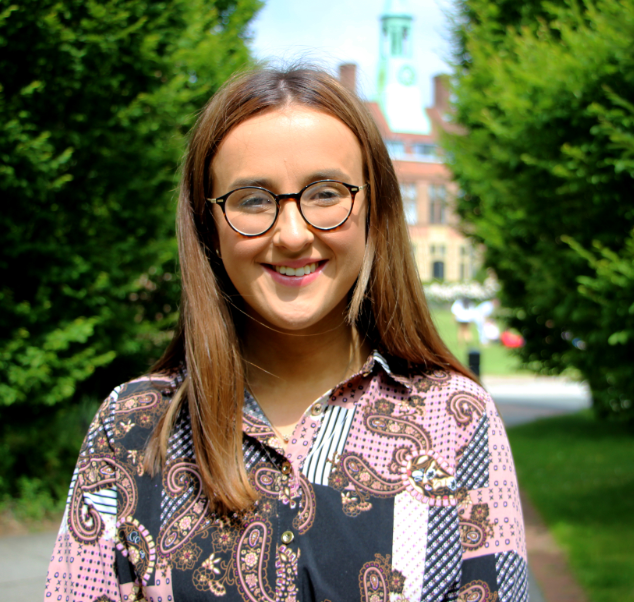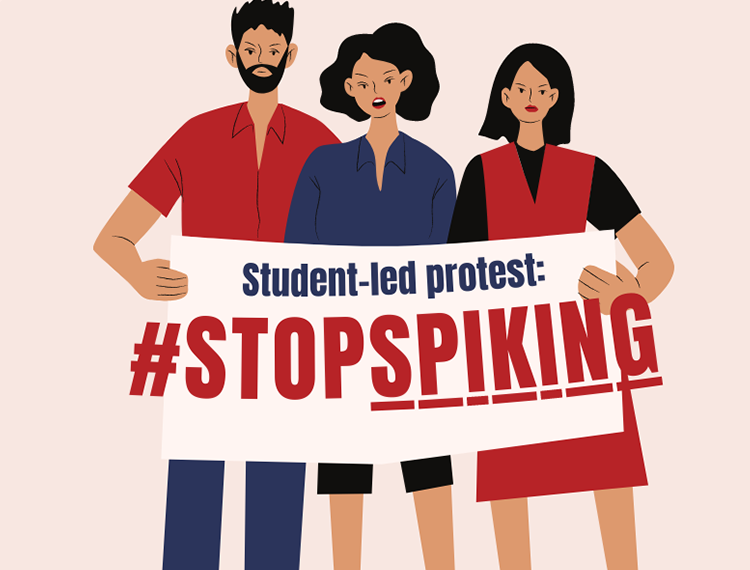DOZENS of Liverpool Hope University students marched in solidarity in the fight against sexual violence this week.
Recent months have seen a surge in reports about incidents of drinks spiking and injection assaults across the UK, including in Liverpool.
In response, Liverpool Hope University led a ‘#StopSpiking’ city centre demonstration, marching alongside students from the city’s other universities.
Merseyside Police say it’s also working closely with a host of partners across the city including Liverpool City Council, Public Health, licensees, licensing, the three universities and the Liverpool Institute of Performing Arts (LIPA) to ‘make sure that we have a public health approach to tackle the issue of spiking’.
But Clara Jayne Priestley, President of Liverpool Hope Students Union, is unconvinced.
She’s worried the issue still isn’t being taken seriously enough - and used a megaphone to tell an assembled crowd just that earlier this week.
She rallied: “Tonight we are standing together and protesting against sexual violence. But this is so much more than a protest. This is a student movement - a movement that will not be silenced, ignored or held back.
“We will not give up until we see change. Each of us deserves the right to be safe in our own bodies, our own environments and our own places. We can never accept sexual violence as part of our community.
“As President of the Students’ Union at Liverpool Hope University, I see firsthand the impact that spiking has on our students. At the minute, we’re averaging about ten reported incidents per week. And this is ten too many.
“At Hope we are a family - and family stands together to protect each other.”
Hope’s Clara Jayne speaks from personal experience.

She believes she too became a victim of spiking having gone for a quiet drink in a bar on Liverpool’s Cumberland Street. She consumed a drink which had, unbeknownst to her, been left unattended for ten minutes, before collapsing. Within hours she was disoriented and even vomiting blood.
The march also saw a minute’s silence held for women and men who have lost their lives to gender-based violence.
Meanwhile Stephanie Trujillo, Vice President Welfare & Community in the Hope Students’ Union, told the crowd: “Since October and the return of students attending university, the Liverpool Hope Students’ Union has heard of many cases of spiking and counting.
We find this unacceptable and we refuse to believe that this is just a mere coincidence or a social media frenzy, as students have reported to us in person on a weekly basis.”
And she added: “We demand that we know what is in the spiking drug and for the police and hospital to work together without delay. We demand to be treated with dignity and care when we are spiked and report it. We demand that there are emergency services and safe spaces available in popular areas for nights out, like Concert Square and Castle Street.
“We demand that every person working in a late night venue has a background check. We demand that staff are required training for spotting spiked drinks, active bystanding and first aid. We demand that there are higher quality CCTVs at bars and clubs. We demand that you realize that this spiking epidemic is neither our fault nor our blame or shame to carry.”

Larrisa Kennedy, President of the National Union of Students, also added her voice to the #StopSpiking march.
In a statement, she said: “To those out on the streets of Liverpool, I’m sending my full solidarity from your national union.
“The struggle you are facing, the fight against sexual violence is a national struggle, and it’s a global struggle too. One in three women around the world are subjected to physical or sexual violence, and as we call for justice for survivors of sexual violence and gendered violence, we centre those most marginalised among us.
“We know that Black women, women of colour, trans women and disabled women are disproportionately affected by this violence. So, as we envision a world where the conditions for this violence have been undone, we must start from the ground up – asking what safety and justice means for those at the margins.”
The march was led from Liverpool’s famous ‘Bombed Out Church’ down Bold Street and to Concert Square - one of the city’s apparent spiking and injection hot spots.
Dr Penny Haughan, Deputy Vice Chancellor and Provost at Hope, was in full support of the march.
She said: “Reports of spiking, not just in Liverpool but on a national level, have been of huge concern to everyone at the University.
“It’s imperative that local authorities work swiftly to counter this extremely worrying threat and I applaud the Hope Students’ Union for passionately highlighting the issue.”
** Keep up to date with the Hope Students’ Union via the Instagram page @liverpoolhopesu



